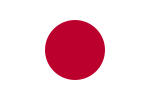
Back Manga AF Manga ALS ማንጋ AM Manga AN مانغا Arabic مانݣا ARY مانجا ARZ Manga AST Manqa AZ Манга BA
| Manga | |
|---|---|
 Example of a manga starring Wikipe-tan | |
| Publishers | List of manga publishers |
| Publications | List of manga magazines |
| Creators | List of manga artists |
| Series | Lists of manga |
| Languages | Japanese |
| Related articles | |
| Part of a series on |
| Anime and manga |
|---|
 |
|
|
| Part of a series on the |
| Culture of Japan |
|---|
 |
Manga (漫画, IPA: [maŋga] ⓘ[a]) are comics or graphic novels originating from Japan.[1] Most manga conform to a style developed in Japan in the late 19th century,[2] and the form has a long history in earlier Japanese art.[3] The term manga is used in Japan to refer to both comics and cartooning. Outside of Japan, the word is typically used to refer to comics originally published in Japan and published in translation, i.e. a Japanese comic book with English text.
In Japan, people of all ages and walks of life read manga. The medium includes works in a broad range of genres: action, adventure, business and commerce, comedy, detective, drama, historical, horror, mystery, romance, science fiction and fantasy, erotica (hentai and ecchi), sports and games, and suspense, among others.[4][5] Many manga are translated into other languages.[6][7]
Since the 1950s, manga has become an increasingly major part of the Japanese publishing industry.[8] By 1995, the manga market in Japan was valued at ¥586.4 billion ($6–7 billion),[9] with annual sales of 1.9 billion manga books and manga magazines (also known as manga anthologies) in Japan (equivalent to 15 issues per person).[10] In 2020 Japan's manga market value hit a new record of ¥612.6 billion due to the fast growth of digital manga sales as well as increase of print sales.[11][12] In 2022 Japan's manga market hit yet another record value of ¥675.9 billion.[13][14] Manga have also gained a significant worldwide readership.[15][16][17][18] Beginning with the late 2010s manga started massively outselling American comics.[19]
As of 2021, the top four comics publishers in the world are manga publishers Shueisha, Kodansha, Kadokawa, and Shogakukan.[20] In 2020 the North American manga market was valued at almost $250 million.[21] According to NPD BookScan manga made up 76% of overall comics and graphic novel sales in the US in 2021.[22] The fast growth of the North American manga market is attributed to manga's wide availability on digital reading apps, book retailer chains such as Barnes & Noble and online retailers such as Amazon as well as the increased streaming of anime.[23][24][25] Manga represented 38% of the French comics market in 2005.[26] This is equivalent to approximately three times that of the United States and was valued at about €460 million ($640 million).[27] In Europe and the Middle East, the market was valued at $250 million in 2012.[28] In April 2023, the Japan Business Federation laid out a proposal aiming to spur the economic growth of Japan by further promoting the contents industry abroad, primarily anime, manga and video games, for measures to invite industry experts from abroad to come to Japan to work, and to link with the tourism sector to help foreign fans of manga and anime visit sites across the country associated with particular manga stories. The federation seeks on quadrupling the sales of Japanese content in overseas markets within the upcoming 10 years.[29][30]
Manga stories are typically printed in black-and-white—due to time constraints, artistic reasons (as coloring could lessen the impact of the artwork)[31] and to keep printing costs low[32]—although some full-color manga exist (e.g., Colorful). In Japan, manga are usually serialized in large manga magazines, often containing many stories, each presented in a single episode to be continued in the next issue. A single manga story is almost always longer than a single issue from a Western comic.[33] Collected chapters are usually republished in tankōbon volumes, frequently but not exclusively paperback books.[34] A manga artist (mangaka in Japanese) typically works with a few assistants in a small studio and is associated with a creative editor from a commercial publishing company.[35] If a manga series is popular enough, it may be animated after or during its run.[36] Sometimes, manga are based on previous live-action or animated films.[37]
Manga-influenced comics, among original works, exist in other parts of the world, particularly in those places that speak Chinese ("manhua"), Korean ("manhwa"), English ("OEL manga"), and French ("manfra"), as well as in the nation of Algeria ("DZ-manga").[38][39]
Cite error: There are <ref group=lower-alpha> tags or {{efn}} templates on this page, but the references will not show without a {{reflist|group=lower-alpha}} template or {{notelist}} template (see the help page).
- ^ Merriam-Webster 2009
- ^ Lent 2001, pp. 3–4, Gravett 2004, p. 8
- ^ Kern 2006, Ito 2005, Schodt 1986
- ^ "Manga/Anime topics". mit.edu. Archived from the original on 22 June 2017. Retrieved 22 June 2017.
- ^ Brenner 2007.
- ^ Gravett 2004, p. 8
- ^ Cite error: The named reference
Encyclopedia Britannica-2022was invoked but never defined (see the help page). - ^ Kinsella 2000, Schodt 1996
- ^ Schodt 1996, pp. 19–20.
- ^ Mullen, Ruth (2 August 1997). "Manga, anime rooted in Japanese history". The Indianapolis Star. p. 44. Archived from the original on 30 May 2018. Retrieved 29 May 2018 – via Newspapers.com.
- ^ "Manga Market in Japan Hits Record 612.6 Billion Yen in 2020". Anime News Network. 26 February 2021. Archived from the original on 14 November 2022. Retrieved 14 November 2021.
- ^ "Manga industry in Japan - statistics and facts". Statista. 11 March 2021. Archived from the original on 14 November 2022. Retrieved 3 December 2021.
- ^ "Japan's 2022 Manga Sales Reaches The Highest in History Again". Crunchyroll. 27 February 2023. Archived from the original on 15 April 2023. Retrieved 11 April 2023.
- ^ "Manga Sales in Japan Reached Highest Point in History in 2022". Otaku USA Magazine. 27 February 2023. Archived from the original on 17 April 2023. Retrieved 11 April 2023.
- ^ Wong 2006, Patten 2004
- ^ "Paperback manga has taken over the world". Polygon. 13 May 2021. Archived from the original on 14 November 2022. Retrieved 13 November 2021.
- ^ "Did manga shape how the world sees Japan?". BBC. 12 June 2019. Archived from the original on 14 November 2022. Retrieved 19 November 2021.
- ^ "Ghouls, demon slayers and socially anxious students: how manga conquered the world". The Guardian. 1 November 2022. Archived from the original on 25 July 2023. Retrieved 30 June 2023.
- ^ "Why are manga outselling superhero comics?". Rutgers Today. 5 December 2019. Archived from the original on 14 November 2022. Retrieved 9 November 2021.
- ^ "Manga and Webtoon Publishers Are Dominating the Comics Industry". comicbook.com. 8 February 2023. Archived from the original on 11 April 2023. Retrieved 11 April 2023.
- ^ "Manga sales hit an all time high in North America". Icv2. 2 July 2021. Archived from the original on 14 November 2022. Retrieved 21 October 2021.
- ^ Grunenwald, Joe; MacDonald, Heidi (4 February 2022). "Report: Graphic novel sales were up 65% in 2021". The Beat. Archived from the original on 29 January 2023. Retrieved 29 January 2023.
- ^ "Today's North American manga market: The wins, the losses, and everything else". Book Riot. 13 August 2021. Archived from the original on 14 November 2022. Retrieved 30 December 2021.
- ^ "Manga is Booming". Publishers Weekly. 29 April 2022. Archived from the original on 24 April 2023. Retrieved 24 April 2023.
- ^ "Manga's Growth In Popularity Is Here To Stay, Industry Leaders Predict". Anime News Network. 13 May 2022. Archived from the original on 14 November 2022. Retrieved 27 July 2022.
- ^ Bouissou, Jean-Marie (2006). "JAPAN'S GROWING CULTURAL POWER: THE EXAMPLE OF MANGA IN FRANCE". Archived from the original on 17 September 2017. Retrieved 22 June 2017.
- ^ "The Manga Market: Eurasiam – Japanese art & communication School". Eurasiam. Archived from the original on 17 September 2017. Retrieved 22 June 2017.
- ^ Danica Davidson (26 January 2012). "Manga grows in the heart of Europe". Geek Out! CNN. Turner Broadcasting System, Inc. Archived from the original on 24 October 2021. Retrieved 29 January 2012.
- ^ Nguyen, Joana (10 April 2023). "Japan's leading business lobby group says anime, manga key to economic growth". South China Morning Post. Archived from the original on 29 June 2023. Retrieved 30 June 2023.
- ^ "Japan: Manga to spearhead nation's economic growth". DW. 23 April 2023. Archived from the original on 30 June 2023. Retrieved 30 June 2023.
- ^ "Why Are U.S. Comics Colored and Japanese Mangas Not?". Slate. 15 July 2015. Archived from the original on 23 April 2021. Retrieved 12 May 2021.
- ^ Katzenstein & Shiraishi 1997
- ^ "Manga". The Concise Oxford Companion to English Literature (4th ed.). Oxford University Press. 2013. ISBN 978-0-19-960821-8.
- ^ Gravett 2004, p. 8, Schodt 1986
- ^ Kinsella 2000
- ^ Kittelson 1998
- ^ Johnston-O'Neill 2007
- ^ Webb 2006
- ^ Wong 2002